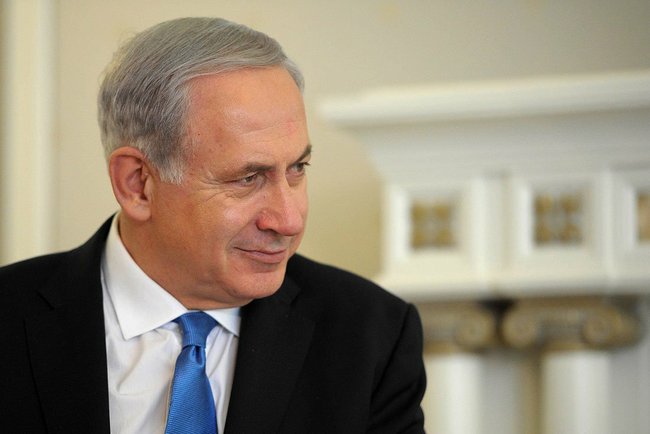The Prime Minister dispatched Governor General David Johnston to the Middle East recently on a mission that largely wasted everybody’s time.
The GG was instructed to articulate the government’s position favouring the creation of an independent Palestine living in peace next to Israel: “a two-state solution and a just, long-standing and comprehensive peace.”
The GG’s tour, so the media were informed, is part of the Liberal government’s effort to “recalibrate” Canada’s policy in the Middle East. Justin Trudeau promises a more “balanced” position after a decade of Pavlovian Conservative support for Israel in any and all circumstances.
Yet the new government’s policy towards Israel and Palestine, as articulated by the Governor General, just happens to be identical to the old government’s policy. Canada may be back, but in the Middle East it’s Stephen Harper’s Canada that is back. And both governments’ stands are curious given that Israeli Prime Minister Benjamin Netanyahu has flatly said he will never accept an independent Palestinian state. Everyone but Canadian governments seems well aware of this.
By coincidence, at about the same time, Roger Cohen, the New York Times columnist, wrote on the same subject. Cohen is a tough-minded Jewish liberal who knows the Middle East intimately. Once a strong advocate of a two-state outcome, today Cohen believes promoting that outcome is “beating a dead horse.”
“A two-state resolution of the Israel-Palestinian conflict is more distant than ever,” he writes.
Nor is there any serious “peace process.” On the contrary. The unjust status quo continues to be steadily reinforced. Constantly increasing numbers of Israeli settlers have moved into Palestinian lands that Israel has been occupying for fully half a century. In the past decade or so, their number has increased from 249,000 to 370,000. These “facts on the ground” give settlers ever-greater influence in the centres of Israeli power and leave the Palestinian West Bank, says Cohen, a collection of “countless little self-administering enclaves…broken up by Israeli settlers.” There are in actuality 165 of these separate little Palestinian islands.
Netanyahu has vowed he will never agree to force those settlers off Palestinian lands, nor can President Mahmoud Abbas of the Palestinian Authority in the West Bank, effectively an Israeli collaborator, accept a Palestine that is not viable.
The reality is that it is madness to imply any kind of equivalence between the two entities. Israel is a normal, thriving independent western nation, except that it receives many billions in “aid” from foreign governments, especially the United States, and its neighbours cause it occasional anxiety.
But for the Palestinians in the West Bank, humiliation and violence at the hands of Israeli soldiers and settlers are literally the everyday preoccupation. In fact, as Ben Ehrenreich concludes in his powerful new book, The Way to the Spring: Life and Death in Palestine, “inflicting humiliation” on Palestinians is an integral part of the soldiers’ assignment. The occupation is a “giant humiliation machine” meant to produce “human despair.”
Michael Lynk, the UN special rapporteur on human rights in the occupied Palestinian territories (and a Canadian), describes this “despair and hopelessness” among Palestinian citizens: “Poverty is rising. Unemployment is rising to epic levels. Food insecurity is becoming more acute. The Palestinian economy is becoming more stifled and less viable under occupation.”
This record of the brutality of both Israeli settlers and Israeli soldiers against mostly defenceless Palestinians shames Israel and shames Israel’s diaspora backers.
But it is the reality. It is how many Israelis regularly treat Palestinian men, women and children, old and young. Ehrenreich offers further witness in his eloquent book. An American novelist and journalist, Ehrenreich spent three years mostly embedded in a few small West Bank villages as their inhabitants struggled against encroaching Israeli settlements. “The two-state solution,” he too learned, “has been a cadaver for years.”
Ordinary Palestinians fight a virtually permanent battle against unsympathetic Israeli soldiers and zealous settlers, who openly lust for ever-more Palestinian land. They must constantly endure the endless Israeli devices to marginalize, separate and dispossess them further — fences, checkpoints, roadblocks, attacks, intimidation, violence, beatings, tear gas, arrests, imprisonment, death.
Ehrenreich paints a haunting picture of injustices repeatedly perpetrated by Israelis against Palestinians. Every day, some Palestinians defy the latest form of oppression, mostly by unarmed resistance, and usually they lose. Most Israelis are unaware this rite even takes place.
It’s David versus Goliath, but, this time, the giant Goliath is an Israeli, and the victor. As Ehrenreich watches, his Palestinian friends, together with their possessions, are humiliated, terrorized, abused, insulted, evicted, demolished, confiscated, dispossessed, expropriated, beaten, wounded or killed by Goliath, and imprisoned, often in solitary confinement (which means torture) for long stretches.
Forty per cent of Palestinian males have spent time in an Israeli prison. According to the International Crisis Group, 99.74 per cent of Palestinians tried in Israel’s military courts have been found guilty.
The conflict has no credible solution for the foreseeable future — Israel will never consider a single state incorporating both peoples — and as in all things, U.S. president-elect Donald Trump will only confuse the situation. Trump seems to tolerate anti-Semitism at home while sometimes championing Israel in the Middle East. No one expects Mr. Trudeau to come up with a practical solution to this intractable situation, and in fact he deserves plaudits for renewing Canadian funding to the UN Relief and Works Agency for Palestine, which the Harper government had cruelly terminated.
But a few words from the Canadian government about Israeli brutality and Palestinian suffering would at least offer Palestinians what they so desperately crave and so rarely get — hope, respect, dignity and understanding.
Please chip in to keep stories like these coming.
Image: Wikimedia Commons




